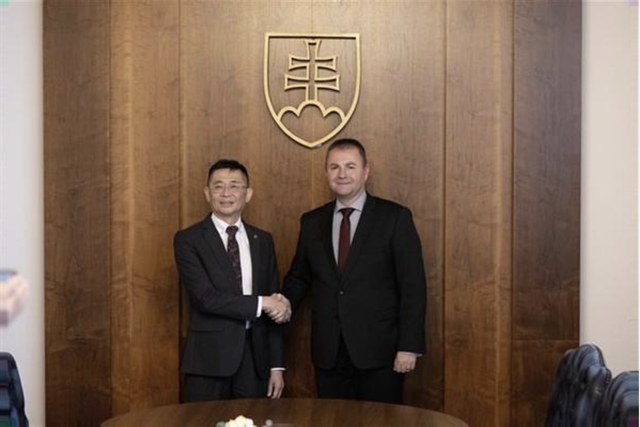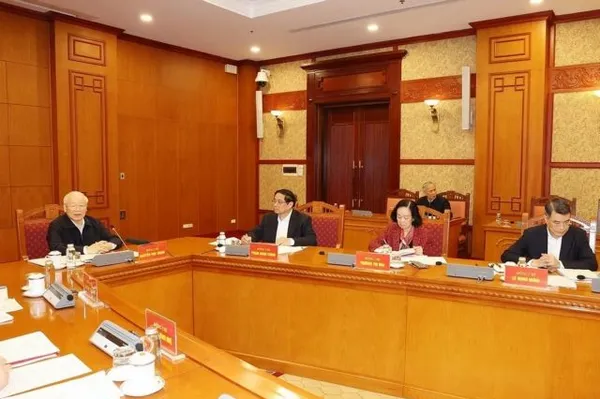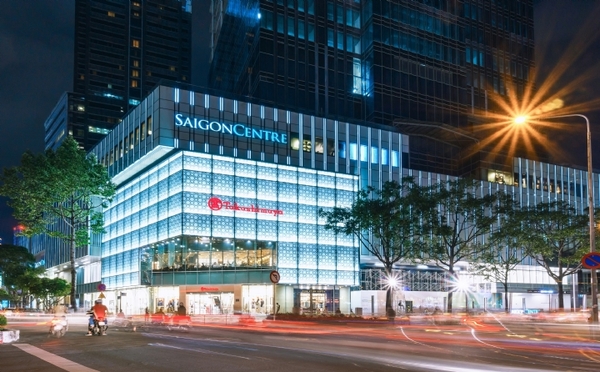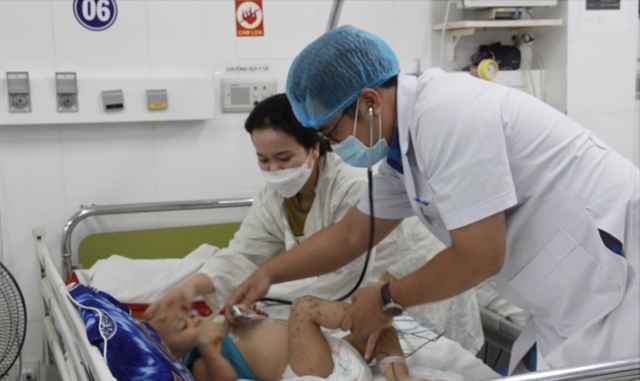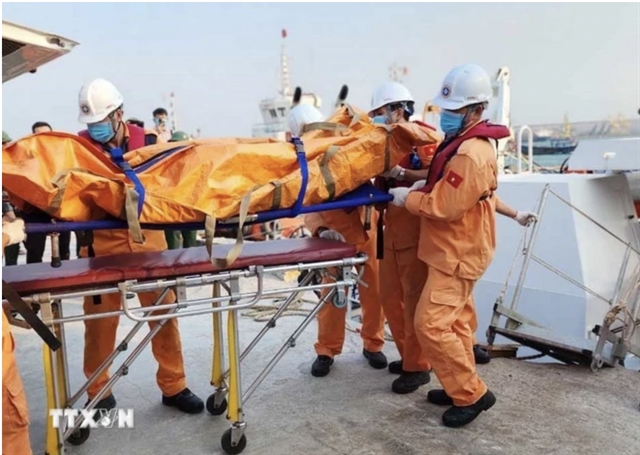 Society
Society
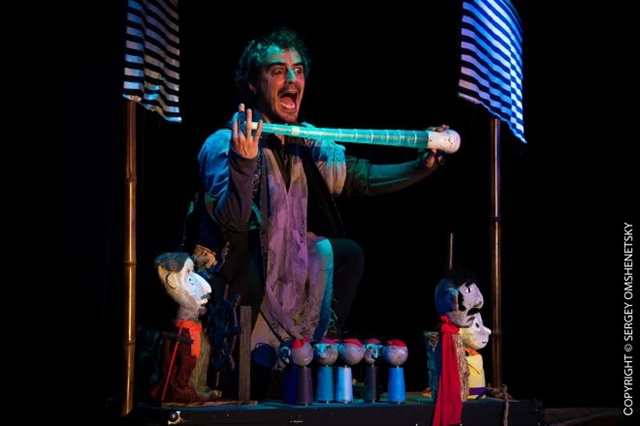
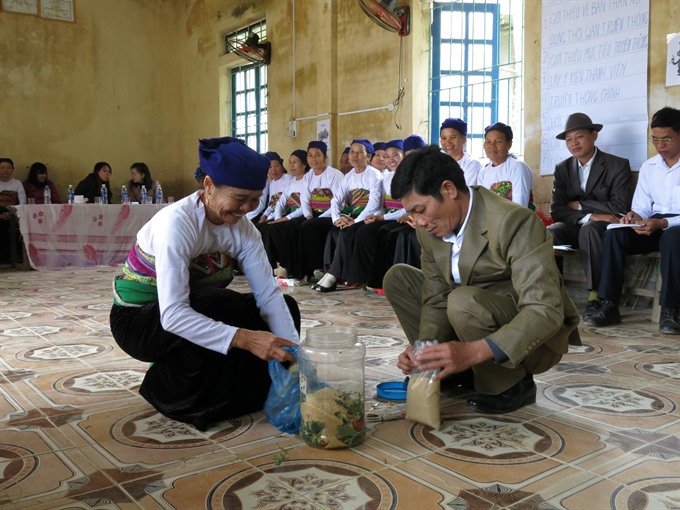 |
| Members of an inter-generational self-help club in Thanh Hóa Province instruct others on growing effective micro-organisms from vegetables and sugar. — VNS Photo Bảo Hoa |
THANH HÓA — Those whose parents are aging or have broken bones and never recovered know the dilemma of taking care of someone who is unable to move.
Usually, their job does not enable them to stay home and attend to their parents’ needs, leaving them with two options: leaving them home alone, or paying a caregiver to look after them.
An uncertified caregiver can earn an average of VNĐ7 million per month for round-the-clock service for a paralysed patient, twice as much as the monthly salary of a government official with a university degree.
For those who left rural areas to find jobs in big cities, an income of VNĐ7 million is enough to keep food on the table for the entire family.
But neighbours of 87-year-old Trương Thị Chiếm in the central province of Thanh Hóa have been taking care of the paralysed woman without asking for anything in return.
Like other houses in Đòn Hamlet in the province’s Lương Nội District, Chiếm’s house is built on stilts and has two compartments.
The rather empty house contains only the most necessary furniture. A simple set of table and chairs is placed in the larger compartment, which functions as a living room.
Chiếm lies on a mattress placed in the middle of the smaller compartment. Her petite body takes up only one-third of the mattress, and around her are several medicinal blister packs and basic necessities.
Chiếm has two daughters; one is married and has moved out. The other lives with her mother but works all day and only comes home in the evening.
Since her daughter is absent most of the time, all of Chiếm’s daily living depends on the assistance of her neighbours, including Hà Thị Quế, who comes to cook, feed her, attend to her personal hygiene and keep her company.
“Meals can be prepared in advance and her daughter could come home at lunch and dinner to feed her, but how can she hold it in whenever she needs to urinate?” Quế said. “Someone must be here with her all day.”
And she does so with great sympathy for the old woman. “It’s like taking care of my own mother,” she said.
Providing home care for old people with special needs is one of the main activities of an inter-generational self-help club of which Quế is a member.
Founded in March, the club operates on a voluntary mechanism. It is aimed at improving the quality of life for elderly members by providing them with support.
Of 52 members, 65 per cent are older than 55. Some 70 per cent of them are from households classified as “poor” and “close to poor” based on the national poverty measures.
Inaugurated by an international organisation for the elderly, some 1,000 similar clubs have been built in 18 provinces and cities across the country.
Economic benefits
Not only providing physical support for the elderly, the club model also helps poor households improve their living conditions by investing in poultry.
Each club received an initial fund of VNĐ80 million ($3,500), which was then used to purchase poultry for 20 club members.
Trương Văn Chiển, 58, of Đòn Hamlet used to have an unsteady source of income from his farming work. After raising 60 ducks in four months, he currently earns VNĐ60,000 ($2.6) a day by selling their eggs.
That’s not much money, but the instant profit makes his daily life easier.
“If we get them a cow or a buffalo, it will take years until they can sell it, while they still have to make ends meet every day,” said Đinh Hồng Chung, a project officer.
“We encourage quick, short-term solutions that give local residents the means to improve their lives on a daily basis, because that’s what old people, women and poor households need the most,” she said.
Chiển’s net monthly income increased by VNĐ4 million ($176), which he took to purchase 100 more ducklings in the hopes of expanding his flock and increasing the number of eggs for sale.
“Attending the club meetings and getting to talk to people make me feel more at ease,” Chiển said of his experience in joining the club. “We often exchanged experiences of raising poultry and poultry disease prevention.”
A monthly meeting often starts with reports from members on the implementation of income improvement solutions, healthcare assistance for club members and fundraising for poor residents.
It then moves on to a knowledge exchange session in which club members learn about different topics ranging from agricultural production to healthcare and renewable materials, interspersed with some dancing for entertainment.
Hà Định Kếm, president of the district’s Association for The Elderly, said that the club’s useful support and practical activities during the monthly meetings made members happier and created a strong sense of community.
However, such wellbeing benefits are intangible; therefore the club model receives little support from authorities and enterprises, he said.
“Our district is poor, the locals are struggling to earn a living, and there are not many business activities around,” Kếm said. “We hope to receive more support from authorities and Government officials to maintain the club’s operation.” — VNS


